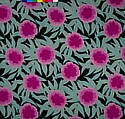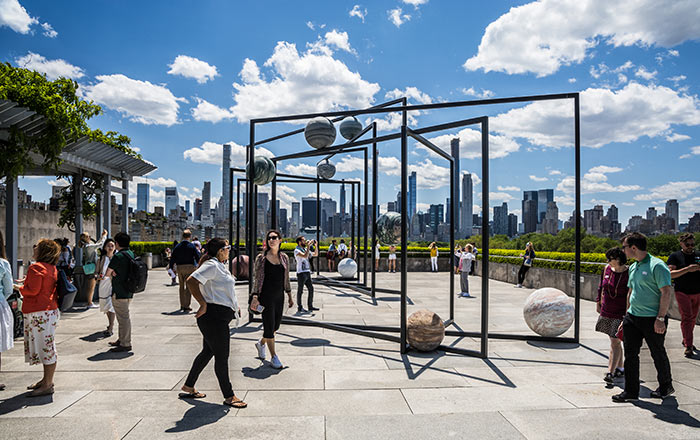Textile
Designer Paul Poiret French
Manufacturer Martine French
Not on view
Martine, which opened on April 1, 1911, was the interior design business owned and operated by Paul Poiret, a noted Parisian couturier. The business consisted of École Martine, Atelier Martine, and La Maison Martine. École Martine (housed in Poiret’s premises in the rue d’Antin) was an experimental art school for young working-class girls. Under the direction of the design educator Marguerite Gabriel-Claude Sérusier, the girls sketched plants and animals at local parks and zoos. Poiret bought the best of their drawings, which were adapted for use by Atelier Martine. At first, the design studio produced only textiles and wallpapers but soon expanded, creating carpets, lighting, hand-painted glassware and ceramics, and other items for interiors (including dolls outfitted by Poiret). Furniture and interior decorating services were introduced under the direction of Guy-Pierre Fauconnet. Little is known about the manufacturers of their products, but it is unlikely that the atelier was able to realize most of their designs in-house, turning instead to outside specialists: Paul Dumas or Defossé & Karth for wallpapers, Adolphe Chanaux for furniture, and Murano for glassware. One notable exception was the deep-pile carpets, hand-knotted by the students. The output of the atelier was sold through the retail and interior design service of the business, La Maison Martine. The shop was located at 107, rue du Faubourg Saint Honoré; it remained there until 1924, when it moved to 1, Rond-Point des Champs-Élysées. By the early 1920s branches had been opened in Marseille, Cannes, Biarritz, Deauville, La Baule, London, and Vienna. Martine products were actively promoted and sold in department stores in America and Germany.
Due to rights restrictions, this image cannot be enlarged, viewed at full screen, or downloaded.

